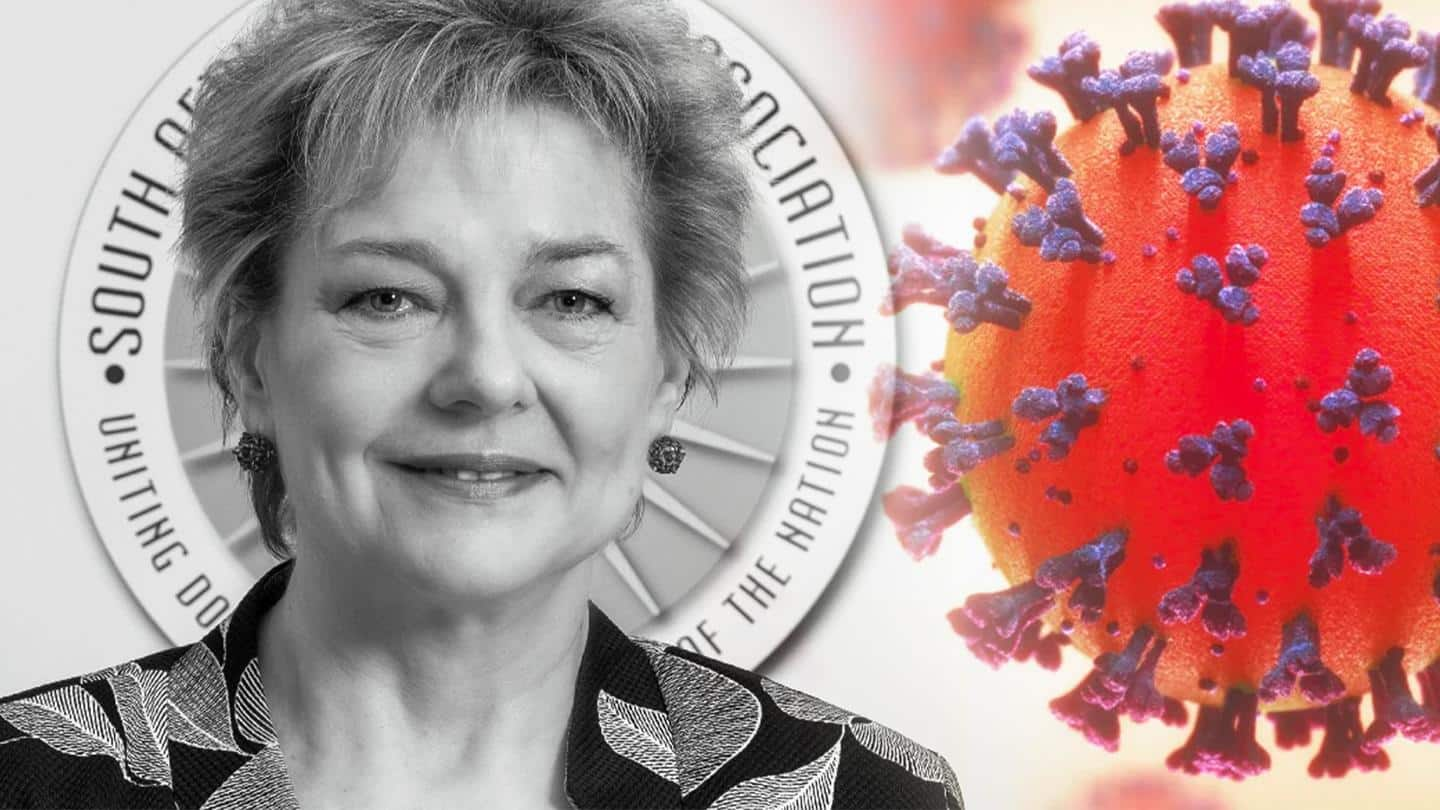
How severe is the Omicron variant? South African doctor explains
What's the story
A top South African doctor who was the first to raise alarm over Omicron says the new coronavirus strain causes mild symptoms. Dr. Angelique Coetzee stated the variant spreads fast but acknowledged it is still early to draw clear conclusions. First detected in South Africa, Omicron is a heavily mutated strain of the coronavirus SARS-CoV-2. Here are more details on this.
Context
Why does it matter?
Dr. Coetzee's assessment of the strain indicates that while Omicron may be more transmissible, it causes a milder disease than variants like Delta. If detailed studies corroborate the findings, it could be good news since the COVID-19 pandemic may be becoming endemic. An endemic is when a disease is perpetually present in a population but its spread remains limited and predictable.
Details
What are the symptoms?
The most common symptoms among Omicron patients are fatigue, body aches and pains, malaise, and headache, Dr. Coetzee told ANI. However, unlike the Delta variant, Omicron does not lead to a loss of smell or taste, a severely blocked nose, or high fever, she said. She added that hospital admissions in South Africa are still low.
Quote
'No one complained of a fever'
"All (patients) had the same type of symptoms, related to COVID-19 like fatigue, body aches, scratchy throat, cough. No one really complained of a fever...Our scientists looked at this and realized it is a new variant," she told Republic TV.
Details
Strain emerged earlier than known: Doctor
Dr. Coetzee said the variant has likely been around for longer than officially known. "Maybe not in South Africa but in other countries because other countries were showing a high rise in their number of infections." She added the strain can be identified through both RT-PCR and rapid testing. If the symptoms are not the same as Delta, "you can safely assume it's Omicron."
Statement
'Vaccines will protect you at this stage'
Omicron was announced by South African authorities on November 25. Dr. Coetzee said cases in South Africa did not rise immediately but recently began increasing significantly. "So we know that it is a fast-spreading virus." "For now, we do know that the vaccines will protect you against the disease at this stage," she assured. Dr. Coetzee also chairs the South African Medical Association.
Details
What else is known about Omicron?
Omicron (B.1.1.529) has some 50 mutations including over 30 in its spike protein alone. Over 370 cases have been detected in 30 nations so far though the actual toll could be higher. The World Health Organization (WHO) has classified it as a variant of concern. It has not been linked to severe disease or death yet. Several studies on it are currently underway.
India
2 Omicron cases in India so far
On Thursday, India confirmed its first two cases of Omicron, both reported from Karnataka. The patients include a 66-year-old South African national who has since left India and a 46-year-old doctor in Bengaluru. The doctor has no international travel history. All their contacts have been traced and are undergoing testing, health officials said at a media briefing.